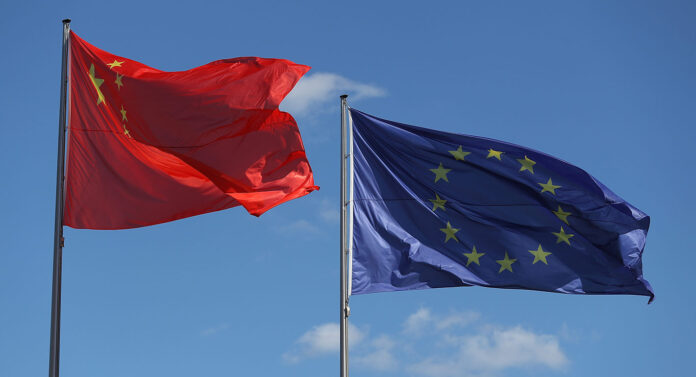Written by: Seringe ST Touray
Editor-in-Chief, The Fatu Network
In the southern Portuguese town of Sines, once known mainly as the birthplace of explorer Vasco da Gama, a new kind of global navigation is taking place. Chinese battery maker CALB has begun building a €2 billion lithium battery plant there, with backing from the Portuguese government and plans to create 1,800 jobs. It is not just a win for Portugal’s economy. It is a sign of how Europe is quietly rethinking its strategy, trying to position itself between two increasingly tense superpowers – the United States and China.
This plant is not an acquisition. CALB is not buying an old facility or a struggling European company. It is building something brand new, from the ground up. That in itself says a lot. Chinese companies are now turning away from the high-profile buyouts that once raised red flags across Europe. Instead, they are putting their money into long-term projects that come with local partnerships, job creation, and government incentives.
“This is not just a factory,” CALB President Liu Jingyu said in February at the project launch. “It is a symbol of cooperation and a shared future between China and Europe.” Her remarks were made just weeks before the United States announced new tariffs targeting Chinese electric vehicles and clean energy tech, a move that only deepened the divide between Washington and Beijing.
In that context, Portugal’s embrace of this project is revealing. Prime Minister Luís Montenegro called it a “historic investment” and “a fundamental step for the future of Sines and Portugal’s energy transition.” His government has made it clear that green technology and foreign investment are both top priorities, and CALB’s arrival ticks both boxes.
Pedro Reis, Portugal’s Minister of Economy, also welcomed the move. Speaking to local press, he said the plant “positions Portugal as a serious player in Europe’s energy and manufacturing sectors.” He also stressed how job creation, tax revenue, and clean-tech output are too important to ignore, especially when many countries worldwide are endeavoring to secure industrial relevance.
The factory will produce lithium-ion cells for electric vehicles and energy storage systems. It will supply automakers and grid operators across Europe. Construction is already underway, with production expected to start in 2026.
CALB’s decision to build in Portugal is not an isolated case. Across the continent, Chinese companies are shifting from buying to building. In Hungary, Contemporary Amperex Technology Co. Limited (CATL), the world’s largest battery manufacturer, is building what is expected to become one of Europe’s biggest battery plants. In Slovakia and Serbia, new greenfield investments are popping up with the support of local authorities. These projects are strategic. They give Chinese firms access to the European market without triggering the backlash that came with previous takeovers of ports, airports, or energy companies.
Bloomberg recently reported that China is “pivoting to higher-value investments” in parts of Europe that are seen as more welcoming. That includes Portugal, where the government has shown a willingness to work with Beijing.
For Europe, the situation is complicated. On one hand, there is pressure from the United States to take a tougher stance on Chinese trade practices. On the other, there is an urgent need to accelerate the green transition, which requires massive investment in batteries, solar panels, and electric vehicles. Europe cannot afford to go it alone. And for now, Chinese capital is filling some of the gaps.
At the same time, Europe is trying to protect its core interests. By encouraging Chinese firms to build rather than buy, countries like Portugal are gaining some control over how foreign investments fit into their national goals. A new factory in Sines, backed by local labour and policy incentives, is far less controversial than a Chinese state-owned company buying a major European port.
That is why CALB’s plant matters. It reflects a broader strategy – not just by China, but by European governments trying to balance their need for investment with the reality of geopolitical tensions.
The jobs and tax revenues are immediate benefits. But the long-term gain is political. Portugal gets to show that it can attract top-tier global projects while upholding European values. China, in turn, avoids some of the predictable headlines in Western press that tend to portray Chinese investments in sensitive sectors as threats.
As global power dynamics shift, smaller countries like Portugal are playing an increasingly important role. They are not just hosting factories. They are shaping the future of international trade, one project at a time.
In the end, this is not only about batteries. It is about strategy. Europe is not turning its back on the United States, but it is making room to act in its own interest. With Washington focused on tariffs and rivalry, and Beijing looking to expand widely, places like Sines are becoming test cases for a new kind of global cooperation – one built not on headlines, but on construction sites and factory floors.




